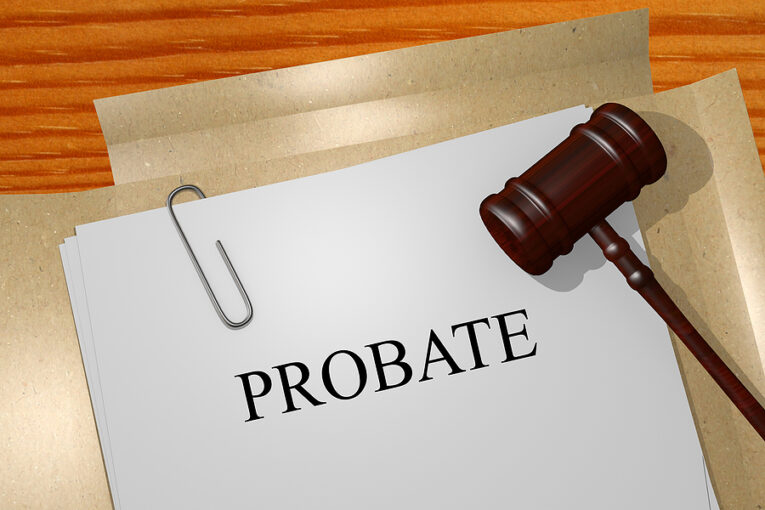Grieving family members often discover the lengthy and complex legal process ahead before they can distribute assets after a loved one passes away. Probate is the court-supervised proceedings to administer a deceased person’s estate by validating their will, paying outstanding debts, filing tax returns, and finally distributing remaining assets to beneficiaries.
While probate serves an important legal function, it comes with no shortage of potential pitfalls. Delays, disputes between heirs, difficulties valuing assets, and complex tax issues are just some of the common challenges families face. Read on for an in-depth guide on why probate derailments happen and how to get the process back on track.
I. Navigating Delays in Probate
It’s not unusual for probate to drag on for 6–12 months, sometimes even longer. While this protects estates from fraud and litigation, it can be an extremely trying time for grieving beneficiaries awaiting their inheritance.
A. Common Causes of Delays
Several factors contribute to backed-up probate timelines:
- Intestacy disputes: When someone dies without a will, the court must step in to determine estate distribution according to state law. This is more time-consuming than probating a clear and legal will.
- Will contests: Disgruntled heirs can dispute the validity of a will in court, bringing the probate process to a standstill until resolution.
- Missing beneficiaries: If heirs are difficult to locate, assets cannot be distributed, causing a delay.
- Asset identification problems: failing to keep clear records of debts, asset holdings, and their values slows the inventory process.
- Claims from creditors: You must settle any outstanding liabilities before distribution.
- Personal representative problems: An overwhelmed, negligent, or untrustworthy estate administrator can severely delay probate.
B. Impact on Beneficiaries
Heirs, left in limbo without their anticipated inheritance, suffer from:
- Financial hardship: They may struggle to pay bills if they count on an inheritance for income.
- Emotional distress: Grieving is more difficult without closure and funds to rebuild their lives.
- Strained relationships: family tensions worsen when assets seem unfairly tied up.
C. Strategies to Minimize Delays
A thorough advance preparation is the best defense against probate delays.
- Maintain an updated will that clearly details asset distribution and names an alternate personal representative in case yours is unable to serve. Leave a proper will. Consult an estate planning attorney to ensure it is legally binding.
- Organize financial records: keep accurate listings of all assets, debts, relevant contacts, and passwords. Review annually.
- Select an appropriate personal representative. Choose someone competent, responsible, and available to serve, with trusted backups in case your first choice declines.
- Open clear channels of communication between your personal representative, attorney, tax professionals, and beneficiaries early on to prevent misunderstandings down the road.
Well-strategized estate planning facilitates a smooth, swift probate process once the time comes.
II. Managing Disputes Among Heirs
Even the most harmonious families can clash when money enters the equation after a loved one’s death. Here’s how to ease tensions and settle differences of opinion to keep the debate on track.
A. Common Reasons for Disputes
- Ambiguous language in a will, such as vague directives or contradictory provisions, can cause very different interpretations of asset division.
- Perceived inequities in asset distribution: believing they deserve more of the inheritance can spur disgruntled heirs to contest.
- Asset valuation debates: differing appraisals of real estate or personal property can result in infighting over who gets what.
- Family power struggles: Probate can become a battleground for longstanding rivalries or jealousies between relatives.
B. Legal Resolution Options
Several legal mechanisms exist to settle disputes between feuding beneficiaries:
- Litigation: Taking the contested issue to court can set a legal precedent for cases with unclear or ambiguous wills. However, this process tends to be adversarial, lengthy, costly, and emotionally taxing for the family.
- Mediation: An attorney trained in mediation can facilitate compromise between conflicting parties. Mediated settlements preserve relationships and avoid nasty courtroom battles.
- Arbitration: Like mediation, an arbitrator hears both sides and makes a binding decision on how to split disputed assets or interpret vague terminology. Less adversarial than litigation.
C. Role of Mediation
Pursuing probate mediation offers families several advantages:
- Preserves family relationships: Mending sibling or marital rifts by finding common understanding is more likely in mediation than in litigation conflict.
- Saves money and stress: Mediation offers a cost-effective, flexible, and rapid route to dispute resolution without long, destabilizing court cases.
- Compassionate mediators strive to uphold the decedent’s wishes, often overlooked in the midst of legal disputes. Through open communication, heirs gain peace of mind and closure.
In many cases, probate mediation delivers win-win solutions to family differences that litigation fails to match.
III. Addressing Complex Asset Valuation
For estates containing hard-to-value assets like real estate, art, antiques, mineral rights, and exotics, arriving at fair market values is seldom simple but absolutely vital for equitable distribution.
A. Challenges in Valuing Assets
- Illiquidity: Assets lacking an active secondary sales market are tricky to appraise, like intellectual property rights or an antique car collection.
- Market fluctuations: Asset classes such as cryptocurrency and commodities experience high volatility, which impacts valuation.
- Disagreement about worth: Beneficiaries may propose widely different prices for unique family heirlooms based on sentimental value.
B. Importance of Professional Appraisals
Given the potential for discrepancies, professional appraisals conducted by accredited experts provide:
- Objectivity: Unbiased third parties can balance different views on what heirs believe assets are worth.
- Accuracy: Skilled appraisers have resources like sales databases and investigative skills. Their valuation estimates hold up better to legal scrutiny.
- Equitability: Relying on professional judgment reduces the risk that some heirs gain an unfair advantage in asset distribution from undervalued or overvalued assets.
- Tax efficiency: Qualified appraisals assist personal representatives in assigning values that minimize total estate taxes while providing proper documentation to the IRS.
C. Impact on Estate Distribution
Arriving at a proper asset valuation impacts probate resolution.
- The valuation of estate assets precisely determines the amount of money or property each heir will receive.
- Affects liquidity: If assets are undervalued, selling them won’t yield cash commensurate with realistic market prices to pay outstanding taxes and debts.
- Minimizes disputes: accurate appraisals, deemed fair by all parties, reduce the likelihood of disputes. The heirs will hire their own appraisers and contest the distribution in court.
While asset valuation poses challenges, clear communication paired with independent professional appraisals goes a long way in averting conflicts over estate distribution.
IV. Identifying and Inventorying Assets
A major hurdle that personal representatives run into is tracing all assets comprising the estate. Failure to discover financial accounts, insurance policies, investments, and property leaves heirs shortchanged.
A. Difficulties in Asset Identification
When inventorying estate assets, personal representatives often encounter common pain points.
- Decentralization: The deceased may have accounts scattered across many banks and brokerages that are difficult to pinpoint.
- Disorganization: The lack of a catalogue of assets along with account details makes it incredibly difficult for personal representatives to track down.
- Unawareness: Assets such as safety deposit boxes, offshore funds, and mineral rights may slip under the radar. Cryptocurrency holdings are also easily overlooked.
B. The importance of keeping a thorough record
Maintaining neatly organized records that list all assets and key access information vastly simplifies this process. Critical components include:
- Catalogue of assets Compiling a quick reference list noting all assets and debts owed, like real estate, investment holdings, life insurance policies, retirement plans, and taxable gifts given over the lifetime exclusion amount, makes it easy for executors to know what they need to locate.
- Up-to-date statements: Having the latest account statements detailing investment portfolio balances, property valuations, and bank/credit union deposits simplifies compiling inventory paperwork.
- Contact information and passwords: Providing point persons for various financial institutions along with login credentials and security question answers avoids obstacles to information retrieval.
C. Legal Requirements for Inventory
In probate filings, state laws impose strict procedural duties on personal representatives to inventory estate assets. Financial penalties can be triggered by under-reporting, negligence that results in lost assets, or distribution before proper inventory. Maintaining current and thorough asset records greatly eases this burden.
V. Handling Debts and Liabilities
Paying off valid debts such as medical bills, credit cards, and taxes often necessitates liquidating assets. If not done properly, this risks extended probate completion and rejected filings.
A. Identifying and Paying Off Debts
To mitigate this, executors should:
- Conduct thorough research, making sure to consult with credit agencies, government tax authorities, hospitals and care facilities used by the deceased, utility companies, among others. If overlooked, the tiniest outstanding bill can derail probate.
- Communicate with creditors: open lines of discussion, submit requested documentation promptly, verify limits on estate liability for debts, and negotiate reasonable payment plans.
- Liquidate wisely: explore which assets incur the lowest tax penalties when sold and factor in the necessary lead time, particularly for real estate.
B. Impact of Outstanding Liabilities
Ignoring debts can lead to complications on several levels:
- Delays distributions: Beneficiaries cannot collect their inheritance until all verified liabilities have been settled.
- Reduces inheritance amounts: paying off debts lowers estate value, leaving less money or assets to distribute.
- Penalizes executors: Courts can compel administrators to repay outstanding bills from their own pockets and charge damages for neglecting duties.
Getting affairs in order while alive and retaining detailed financial records makes handling debts much more seamless.
C. Legal Obligations of the Personal Representative.
State laws explicitly define executor responsibilities regarding debt repayment, with serious repercussions for non-compliance. This includes:
- Notifying all creditors of estate proceedings.
- Specifying deadlines for claim submission.
- We are verifying the legitimacy of all debts against estate records.
- The process involves satisfying the court protocol for selling assets to cover large liabilities.
- We maintain a record of the debts paid and provide updates on the progress for the heirs.
- Once creditors receive payment, file receipts.
Understanding legal obligations from the outset prevents nasty surprises or accusations down the road.
VI. Tax Issues in Probate
Navigating complex state and federal tax codes gives most taxpayers a headache. Death and taxes ring particularly true for personal representatives, who must file multiple returns on tight deadlines while facing hefty penalties for mistakes.
A. Types of Taxes Involved
Common levies include:
- Federal estate taxes: Taxable estates worth over $12 million must file IRS Form 706 within 9 months. Below this threshold, a less complex Form 706-NA may apply for death tax returns.
- State estate and inheritance taxes: More than a dozen states impose additional death taxes, with exemptions within IRS limits.
- Income taxes: The deceased’s final personal tax return is due by April 15 of the year after death for assets that are not part of the probate estate, such as living trusts and jointly held property. During probate, the estate itself pays an income tax on investment earnings.
B. Tax Filing Requirements
Executors must fulfill key filing duties.
- I am submitting all required death tax forms by federal and state deadlines.
- The tax liability on withdrawals or asset sales is paid to cover administrative fees during probate.
- I am issuing K-1 tax statements to heirs, noting inheritance amounts and character.
- The process involves withholding and remitting state taxes on distributions to beneficiaries living elsewhere.
C. Strategies for Tax Minimization
Planning shrewdly to minimize the estate’s overall tax burden includes:
- Selecting capital gains tax-saving strategies for asset liquidation, such as selling loss harvests, is crucial.
- Working with appraisers to defend justifiable valuations minimizes taxes owed based on fair market value at the time of death.
- If asset values dropped significantly, evaluate alternate valuation dates up to 6 months after death.
- We are considering qualified disclaimers that enable beneficiaries to transfer gifted assets to heirs in lower tax brackets.
- Transferring partial interests is still intact, rather than selling assets in their entirety.
- Funding bypass trusts up to federal exemption limits can shield further appreciation if married.
With professional guidance from legal and tax experts, personal representatives stand the best chance of eliminating unnecessary taxes that deplete the estate’s value.
VII. Dealing with Missing or Unclear Wills
When a decedent leaves no will or one whose validity is challenged, probate hits a roadblock. Securing court judgments clarifying distribution wishes is time-consuming, but it prevents future inheritance disputes.
A. What are the legal steps to take if a Will is missing?
- The court names an administrator, often the next of kin.
- We send out notifications requesting the filing of any wills or testaments.
- If none emerges, state laws will eventually determine the distribution of assets to heirs.
If a valid will emerges later, the court will decide whether to accept it or uphold any distributions that have already been completed. Because of this uncertainty, finding the will early on is critical.
B. If a Will is Unclear
Typical clarity issues include ambiguous language, confusing amendments or asset re-allocations, concerns about authenticity, or capacity doubts over testator competency when signed. In such cases,
- Interested parties can file motions requesting the court to rule on a disputed provision.
- Judges typically review extrinsic evidence about the testator’s intent and may call witnesses familiar with the circumstances surrounding its drafting.
- To avoid a prolonged legal battle, families might first seek mediation or a ruling from non-litigation arbitrators whom all sides appoint.
C. Role of the Courts
When content or validity is questioned, probate judges:
- If there is no other reasonable way to resolve the ambiguity, decide whether to declare all or only the disputed portions invalid.
- Should we hold disputed assets in escrow if litigation appears likely to resolve disagreements over interpretation?
- It can compel parties to try reaching a compromise through mediation prior to a court date.
- Finally, if no agreement manifests voluntarily, rule on the testator’s likely intent related to vague or contested terms in a will.
Leaving clear directives in an airtight envelope will prevent costly courtroom showdowns and ensure your final wishes prevail.
VIII. Probate Fraud
Sometimes unscrupulous schemers submitting false documents manage to siphon estate funds before getting caught. Understanding common tactics makes personal representatives and beneficiaries more vigilant against scams.
A. Typical Fraud Methods
- Forged or fraudulent will: Criminals craft fake wills, granting them cash bequests or control over the estate for their own financial gain.
- Impersonation: Fraudsters pretend to be estate executors, heirs, creditors, or asset appraisers to embezzle funds.
- False liabilities: By submitting invented invoices from fake creditors, swindlers collect on “debts” that never existed.
B. Preventive measures
Wise precautions against probate fraud include:
- We are requesting photo IDs from unfamiliar parties involved.
- We verify the credentials of hired professionals independently.
- Cross-checking inventory for suspicious omissions.
- We flag newly surfaced debts near the end for extra scrutiny.
C. Legal Recourse
If you suspect financial malfeasance:
- Document evidence thoroughly of the statements, materials, or asset transfers in question.
- Halt suspicious disbursements until you are confident that the debts or distribution directives are legitimate.
- Contact local authorities and file a police report about suspected fraud.
- For recovery and justice, consult with an attorney about pursuing civil or criminal charges against perpetrators.
Diligently vetting all parties interacting with an estate allows personal representatives to protect beneficiaries against predatory wrongdoing.
IX. Conclusion
As we’ve explored, probate proceedings often run into complications that can stall asset distribution for months or even years beyond expectations at an emotionally vulnerable time for grieving families.
By planning ahead with clear wills, organized records, trusted estate administrators, and open communication channels, decedents can preemptively smooth the road ahead for loved ones. Lawyers also assist executors and beneficiaries through turbulence in navigating the intricate legal maze of probate, should disputes or delays arise.
Understanding common obstacles is rarely easy, but it equips everyone involved to address challenges affirmatively. With patience and teamwork, this important process toward securing your legacy eventually concludes, so heirs carry positive memories honoring a loved one’s passing rather than bitter legal battles.
FAQs
Common challenges in probate include delays due to intestacy disputes, will contests, difficulties locating beneficiaries, asset identification problems, creditor claims, and issues with personal representatives.
Probate delays can be minimized through thorough estate planning, maintaining updated financial records, selecting a competent personal representative, and establishing clear communication channels among all parties involved.
Common reasons for disputes include ambiguous language in the will, perceived inequities in asset distribution, disagreements about asset valuations, and longstanding family power struggles.
Professional asset valuation ensures objectivity, accuracy, and fairness in distributing estate assets, helps minimize disputes, and provides proper documentation for tax purposes, reducing the risk of undervaluation or overvaluation.
If a will is missing, the court appoints an administrator and state laws determine asset distribution. For unclear wills, interested parties can file motions for court rulings, and mediation or arbitration can be used to resolve disputes outside of court.





